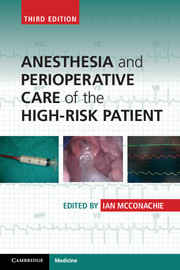
The specialised study units define the further specialised knowledge and skills required for the anaesthetic management of patients in specific contexts.
They are: Cardiac surgery and interventional cardiology; General surgical, urological, gynaecological and endoscopic procedures; Head and neck, ear nose and throat, dental surgery and electro-convulsive therapy; Intensive care; Neurosurgery and neuroradiology; Obstetric anaesthesia and analgesia; Ophthalmic procedures; Orthopaedic surgery; Paediatric anaesthesia; Plastic, reconstructive and burns surgery; Thoracic surgery; Vascular surgery and interventional radiology.
Learn more about the resources intended to aid trainees in developing knowledge and skills specific to these specialities.
Guide index
 Library > Library guides > Training & examinations > Anaesthesia training resources
Library > Library guides > Training & examinations > Anaesthesia training resources
Recommended resources are listed below.
 Additional general surgical procedures resources can be accessed via the Anaesthesia essentials guide.
Additional general surgical procedures resources can be accessed via the Anaesthesia essentials guide.
 Anesthesia and Perioperative Care of the High-Risk Patient, 3e
by
The fully updated third edition of this popular handbook provides a concise summary of perioperative management of high-risk surgical patients. Written by an international group of senior clinicians, chapters retain the practical nature of previous editions, with concise text in a bulleted format offering rapid access to key facts and advice.
Anesthesia and Perioperative Care of the High-Risk Patient, 3e
by
The fully updated third edition of this popular handbook provides a concise summary of perioperative management of high-risk surgical patients. Written by an international group of senior clinicians, chapters retain the practical nature of previous editions, with concise text in a bulleted format offering rapid access to key facts and advice.
 The First Year: What You Should Know After a Year of Anaesthesia Training (Rev Ed)
by
Recommended
This book is not an exam primer nor is it a comprehensive textbook of anaesthesia. This is the book you give to the trainee specialist who is about to embark on their anaesthesia training. It contains the information they need to formulate and develop a safe practice of anaesthesia. This book lucidly describes and justifies the core knowledge, behaviours and practical skills that a junior trainee would be expected to possess after a year of anaesthesia. Written specifically for Australasian specialist anaesthetic trainees and those doing the Rural Generalist Anaesthesia (RGA) training course, this book fills the gaping hole in the existing anaesthetic literature. The curriculum for the Introductory Training period and the RGA is comprehensively addressed in this book.
The First Year: What You Should Know After a Year of Anaesthesia Training (Rev Ed)
by
Recommended
This book is not an exam primer nor is it a comprehensive textbook of anaesthesia. This is the book you give to the trainee specialist who is about to embark on their anaesthesia training. It contains the information they need to formulate and develop a safe practice of anaesthesia. This book lucidly describes and justifies the core knowledge, behaviours and practical skills that a junior trainee would be expected to possess after a year of anaesthesia. Written specifically for Australasian specialist anaesthetic trainees and those doing the Rural Generalist Anaesthesia (RGA) training course, this book fills the gaping hole in the existing anaesthetic literature. The curriculum for the Introductory Training period and the RGA is comprehensively addressed in this book.
 Miller's Anesthesia, 10e
by
***Highly Recommended*** Offering up-to-date coverage of everything from historical and international perspectives to basic science and today’s clinical practice, Miller's Anesthesia 10e, remains the #1 reference and trusted learning resource for practitioners and trainees in this complex field. Dr. Michael Gropper leads a team of expert editors and contributing authors who provide current information on the technical, scientific, and clinical issues you face each day—whether you’re managing a challenging patient care situation, preparing for the boards, or studying for recertification.
Miller's Anesthesia, 10e
by
***Highly Recommended*** Offering up-to-date coverage of everything from historical and international perspectives to basic science and today’s clinical practice, Miller's Anesthesia 10e, remains the #1 reference and trusted learning resource for practitioners and trainees in this complex field. Dr. Michael Gropper leads a team of expert editors and contributing authors who provide current information on the technical, scientific, and clinical issues you face each day—whether you’re managing a challenging patient care situation, preparing for the boards, or studying for recertification.
Recommended resources are listed below.
Recommended resources are listed below.
 Irwin and Rippe's Intensive Care Medicine, 8e
by
Irwin and Rippe's Intensive Care Medicine, 8e
by
Recommended professional documents are listed below. The full suite of ANZCA professional documents can be accessed via the college page.

Quick links
About ANZCA
Copyright © Australian and New Zealand College of Anaesthetists.